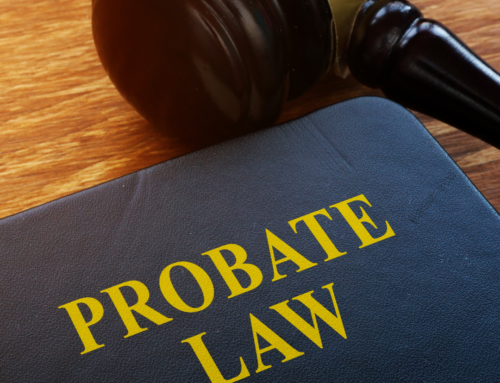From The Desks of Olivia Young and Angela Greenspan
Starting January 1, 2024, the Corporate Transparency Act (the “CTA”) and its reporting requirements will impact an estimated 32 million companies doing business in the United States. All companies, and their owners, should begin educating themselves on the requirements and gearing up to comply with the CTA.
What is the Corporate Transparency Act?
Congress enacted the CTA as part of the William M. (Mac) Thornberry National Defense Authorization Act for fiscal year 2021, Pub. L. No. 116-283, which added 31 U.S.C. § 5336, entitled “Beneficial ownership information reporting requirements,” to the Bank Secrecy Act.
Intended by Congress to prevent the use of legal entities, particularly shell companies, to commit crimes ranging from tax fraud to money laundering, the CTA requires “reporting companies” to disclose personal identifying information pertaining to certain individuals, known as “beneficial owners,” to the Department of Treasury’s Financial Crimes Enforcement Network (“FinCEN”). Congress delegated implementation, enforcement, and promulgation of additional rules pertaining to the CTA to FinCEN.
What Is a Reporting Company?
The broad definition of “reporting companies” subjects most domestic and certain foreign companies to FinCEN’s reporting requirements unless they qualify for a specific exemption under the CTA. Such domestic reporting companies include corporations, limited liability companies, and any other entity created by filing a document with a Secretary of State or any similar office. Foreign reporting companies include corporations, limited liability companies, and other entities formed under foreign law and registered to do business in the United States by filing a document with a Secretary of State or any similar office.
The CTA sets out 23 exemptions from CTA reporting requirements. These exemptions release certain entity types, such as domestic governmental authorities, banks, credit unions, securities brokers and dealers, tax-exempt entities, and others, from compliance with CTA reporting requirements. Another significant exemption that is likely to apply to a large number of companies is the “large operating company” exemption to the CTA. The CTA defines a “large operating company,” as a company i) that employs more than 20 employees on a full-time basis, ii) reported more than $5 million or more in gross receipts on its federal income tax return or information return for the previous year, and iii) has an operating presence at a physical office within the United States. Whether or not an exemption applies is an ongoing determination, and a company may not always qualify as an exempt entity. Entities should consult with their legal counsel each year to determine whether they qualify for any of the exemptions enumerated by the CTA.
What Information Must Be Reported?
A reporting company must disclose i) the company’s legal name, ii) any fictitious business name, dba or trade name that the company conducts business under, iii) the company’s current business address, iv) the jurisdiction in which the entity was formed or registered, and v) a unique identification number, such as an employer identification number or tax identification number.
In addition to the information outlined above, each reporting company must report “beneficial ownership information” (“BOI”) for each “beneficial owner” of the business (see below for more information on identifying the beneficial owner(s) of a business under the CTA). The BOI must include, for each beneficial owner, that owner’s: i) full legal name, ii) birth date, iii) current residential or business address, iv) unique identifying number from an approved government issued document (such as a driver’s license), and v) an image of the document containing the unique identification number provided.
Further, for entities formed or registered on or after January 1, 2024, each reporting company must include the BOI of at least one “company applicant” which refers to the individual forming the entity, which may be an attorney or other legal professional.
While tackling the above-described reporting requirements will undoubtedly be burdensome for many reporting companies, these requirements will become substantially reduced following filing of the initial report by the reporting entity. As part of their initial report, beneficial owners and company applicants may apply for a FinCEN identifier, which can be used as a substitute for the information required above on future filings. Additionally, once the initial report has been filed, there is no annual reporting requirement, and a new report will only need to be filed if there is a change in the ownership of the reporting company (see below for more information on timing and necessity of future reports).
Who are Beneficial Owners and Company Applicants?
Beneficial Owners
A beneficial owner is an individual who directly or indirectly, through any contract, arrangement, understanding, relationship, or otherwise, i) exercises substantial control over the entity (senior officers, managers, etc.); or ii) owns or controls 25% or more of the entity’s ownership interests.
A reporting company can have more than one beneficial owner and will always have at least one beneficial owner. As with reporting companies, the definition of beneficial owner contains numerous exceptions, including minor children, nominees, individuals solely acting as an employee, individuals whose interest is through an inheritance they have not received yet, and creditors.
Determining “substantial control” and ownership or control of ownership can be a daunting task for complex structures, and each requirement casts a wide net to capture a number of potential individuals. Individuals can exercise substantial control in four different ways and will include individuals such as board members, directors, managers, managing members, executive officers, or any other individual who has substantial influence over important company decisions.
The Substantial Control Test
An individual exercises substantial control over a Reporting Company if such individual:
- Serves as a “Senior Officer” (i.e., any individual holding the position or exercising the authority of a President, Chief Executive Office, Chief Financial Officer, General Counsel, Chief Operating Officer or any other officer, regardless of official title, who performs a similar function) of such reporting company;
- Has authority over the appointment or removal of any Senior Officer (i.e. a Board of Directors or governance board) of such reporting company;
- Directs, determines, or has substantial influence over important decisions made by such reporting company; or
- Has any other form of substantial control over such reporting company.
Company Applicants
Company applicants include a maximum of two individuals; i) the individual who directly filed the document(s) that created the domestic entity or registered the foreign entity and ii) the individual who directed or controlled the individual who filed the documents. This may be the same individual in some instances. Entities formed before January 1, 2024, do not have to provide BOI with respect to company applicants.
When Must a BOI Report be Filed?
Companies formed or registered before January 1, 2024, have until January 1, 2025, to file the initial BOI report. For companies formed or registered after January 1, 2024, the initial BOI report must be filed within 90 days of formation or registration. This reporting deadline was extended from the original 30-day window by the FinCEN final regulations, 31 C.F.R. 1010. Companies formed or registered after January 1, 2025, are required to file their BOI report within the original 30-day window.
As noted above, reporting companies that have submitted an initial report must submit additional report(s) if the reported information for any beneficial owner or the reporting company changes from that submitted on the previous report. In these instances, an updated BOI report must be filed within 30 days of the change taking place. Additionally, if an individual no longer qualifies for a beneficial owner exception, or an otherwise exempt company is no longer exempt, an updated report must be filed within 30 days of the change.
Penalties for Noncompliance
The Act imposes steep criminal and civil penalties, including possible imprisonment. Companies that fail to report BOI or fail to correct incomplete or incorrect information may be subject to a fine of $500 per day until the violation is corrected. In the case of a willful failure to file, failure to provide complete or updated information, or fraudulent conveyance of false information, companies may be subject to a penalty of up to $10,000 and two-year imprisonment.
What Do You Need to Do?
Companies should determine whether they will be subject to the CTA by reviewing their corporate structure, updating organizational flow charts, and consulting with legal counsel.
The key questions that both U.S. and foreign entity owners must ask themselves in determining their compliance obligations with respect to the CTA are as follows:
- Does my company fall under the CTA’s broad definition of a reporting company?
- Does my company meet any of the 23 exemptions to the definition of a reporting company set out in the CTA?
- If my company is a reporting company and does not meet an exemption:
- What information must be reported to FinCEN?
- When do I have to submit a report?
In conjunction with the CTA, companies who are required to report should consider creating beneficial ownership registers, reviewing and updating their existing privacy policies and procedures, developing an internal compliance program, implementing and maintaining technical, administrative and physical security measures to ensure BOI information and identifying documents collected are protected from unauthorized access, and ensuring that information used for reporting does not violate other privacy laws under state and federal laws. Many of the above-described tasks relating to CTA can be outsourced to qualified legal professionals, such as your team at Fauver, Large, Archbald & Spray, LLP (“FLAS”).
The CTA’s regulations, particularly the substantial control and ownership requirements, are complex, and a full analysis of which is beyond the scope of this article. For additional assistance, FinCEN has provided a frequently asked questions list, which can be found here, as well as a small entity compliance guide, which can be found here.
Your FLAS team is here to help you and your business become compliant and stay compliant with the CTA. For further information or assistance with CTA compliance, or any other needs of your business, please contact FLAS.





